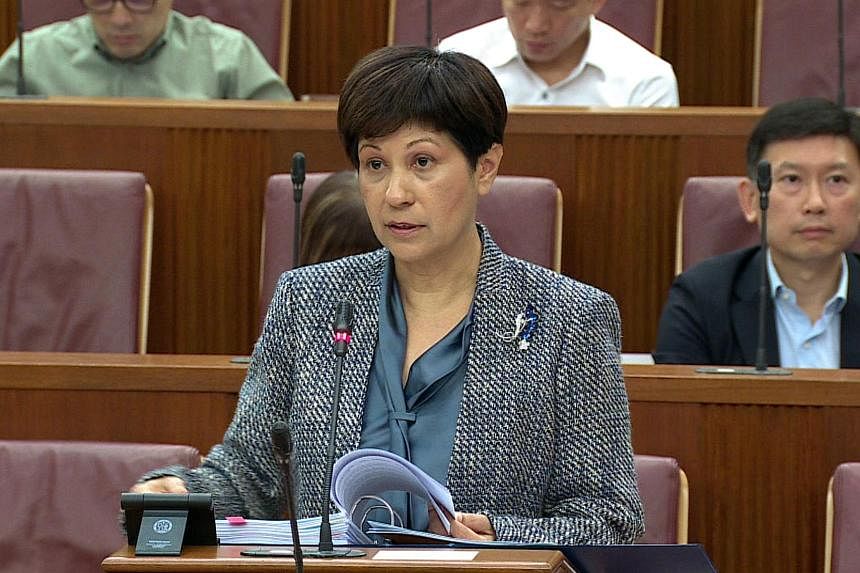SINGAPORE – An inter-ministerial committee will be set up to review Singapore’s financial system and strengthen its anti-money laundering regime, Second Minister for Finance Indranee Rajah said.
“Criminals are increasingly sophisticated and will constantly find new ways to circumvent our laws and regulations. Thus, we must continue to strengthen our information-gathering and intel-sharing capabilities to better detect illicit activities conducted by companies incorporated in Singapore,” she said.
Ms Indranee was responding to questions raised in Parliament on Tuesday in relation to one of Singapore’s biggest money laundering cases involving more than $2.8 billion in assets, including properties, luxury cars and cash.
The inter-ministerial committee will be chaired by Ms Indranee and comprise office-holders from the Monetary Authority of Singapore, Ministry of Home Affairs, Ministry of Law, Ministry of Manpower and Ministry of Trade and Industry.
It will focus on four areas.
First, how to prevent corporate structures from being abused by money launderers.
Second, how financial institutions can enhance their controls and collaborate more effectively to guard against and flag suspicious transactions.
Third, how other players in the system, such as corporate service providers, real estate agents, and precious stones and metals dealers, can help to guard against money laundering risks.
Finally, how to centralise and strengthen capabilities across government agencies to better detect suspicious activity.
Ms Indranee also highlighted some of the existing measures put in place by the Accounting and Corporate Regulatory Authority (Acra) to deter the misuse of companies for money laundering.
All companies are required to have at least one director resident in Singapore, to ensure that someone can be held accountable for any breaches committed by the company in Singapore.
Non-resident foreigners looking to set up companies in Singapore will therefore need to either appoint a resident business partner as a director or appoint a nominee director to act on their behalf.
In line with international benchmarks, there are currently no limits to the number of companies that a director can be involved in. However, 99 per cent of directors here hold fewer than 10 directorships, Ms Indranee said.
Still, restrictions on directorships to ensure that nominee directors are fit and proper to take up the role, and whether it would be useful to limit the number of nominee directorships that one can hold, are being studied. These proposals will be tabled in Parliament in early 2024, Ms Indranee said.
Post-incorporation, Acra looks for signs of inactivity, such as failure to file annual returns, and will strike off companies that remain inactive after a period of time or are flagged via intelligence by other agencies.
About 17,000 such companies have been struck off over the last five years, Ms Indranee said.
She added that the companies associated with the money laundering case have been filing returns with Acra and have thus remained on the register.
Acra currently imposes additional requirements on foreign-owned or foreign-controlled companies.
For example, non-residents who are looking to set up companies in Singapore must engage Acra-authorised corporate service providers, also known as Registered Filing Agents (RFAs), to incorporate a company.
RFAs are legally required to conduct customer due diligence, by identifying and verifying the identities of the customer and the beneficial owners of the intended incorporated company.
They must ensure that a customer’s identity is established through additional documents or information if the customer is not present, and inquire about the purpose and legitimacy of the use of a company structure.
RFAs must also not proceed with the incorporation of the company and should file a Suspicious Transaction Report if a customer fails due diligence checks.
Ms Indranee said that between 2021 and 2023, Acra imposed 24 sanctions against RFAs, including eight cases where the RFA’s registration was cancelled or suspended.
She also noted that Acra is investigating the role played by the RFAs involved in the money laundering case, and will take enforcement action as necessary.
Additional measures, including enhancing the penalties on errant service providers to strengthen the effectiveness of Singapore’s anti-money laundering regime, have been planned. These proposals will be tabled in Parliament in early 2024, Ms Indranee said.
“Singapore is determined to preserve our hard-earned reputation as a clean and trusted business hub. We will continue to hold our zero-tolerance approach towards money laundering, and do our best to ensure a strong and robust regulatory regime,” she said.


